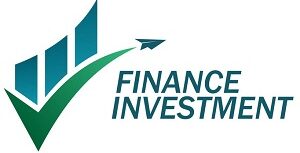Investing in Exchange-Traded Funds (ETFs) has become increasingly popular recently, and Singapore is no exception. With its vibrant economy and attractive investment opportunities, Singapore is a prime destination for many investors looking to diversify their portfolios. However, with so many ETFs available today, deciding which ones are worth investing in can take time and effort. This article will discuss the most favoured ETFs to trade in Singapore and explore their benefits and drawbacks.
SPDR Straits Times Index ETF
The SPDR Straits Times Index ETF (STI ETF) is one of Singapore’s most well-known and popular ETFs. It tracks the performance of the Straits Times Index, which comprises the top 30 companies listed on the Singapore Exchange. It enables investors to gain exposure to various industries, including banking, real estate, and telecommunications.
The STI ETF is ideal for investors seeking long-term, low-risk investments. It also offers a dividend yield of around 2-3% annually, making it an attractive option for income-seeking investors.
However, one drawback of the STI ETF is its lack of diversification. As it only tracks the top 30 companies in Singapore, it does not provide exposure to smaller companies or other markets outside of Singapore. Its performance is heavily influenced by the performance of these 30 companies, which may not always accurately reflect the overall market.
Nikko AM STI ETF
The Nikko AM STI ETF is another popular ETF that tracks the Straits Times Index. It offers similar benefits as the SPDR STI ETF, such as low-risk and dividend income. However, it also has a slightly lower expense ratio of 0.3% than the SPDR STI ETF’s 0.3%. Therefore, investors can potentially earn higher returns with the Nikko AM STI ETF.
The Nikko AM STI ETF also has a more diversified portfolio than the SPDR STI ETF, with around 40 holdings compared to only 30. It exposes investors to a broader range of industries and companies listed on the Singapore Exchange. You can view their holdings on the Saxo website.
One potential drawback of the Nikko AM STI ETF is its lower trading volume than other ETFs in Singapore, which could result in higher bid-ask spreads and potentially higher costs for investors.
ABF Singapore Bond Index Fund
For investors looking to add fixed-income securities to their portfolio, the ABF Singapore Bond Index Fund is an excellent option. It tracks the iBoxx ABF Singapore Bond Index, which comprises government and quasi-government bonds issued in Singapore. It provides investors with a low-risk investment option, offering stable returns and diversification.
The ABF Singapore Bond Index Fund has a relatively low expense ratio of 0.25%, making it an affordable option for investors. It also provides monthly dividend payments, offering a steady income stream to investors.
However, one downside of this ETF is its limited exposure to other markets and industries. It focuses solely on Singapore bonds, which may not provide enough diversification for some investors.
Lion-Phillip S-REIT ETF
The Lion-Phillip S-REIT ETF is a popular choice among investors looking to gain exposure to the real estate market in Singapore. It tracks the performance of 23 REITs listed on the Singapore Exchange, making it convenient for investors to invest in a diverse range of real estate properties.
The Lion-Phillip S-REIT ETF offers several benefits, such as low expenses and regular dividend payments. It also provides investors with exposure to not just residential but also commercial and industrial real estate properties in Singapore.
However, one potential drawback of this ETF is its lower yield than other REIT-focused ETFs in the market, possibly due to its focus on fewer REITs and limited exposure to other markets outside of Singapore.
Nikko AM SGD Investment Grade Corporate Bond ETF
The Nikko AM SGD Investment Grade Corporate Bond ETF is a top choice for investors seeking to add corporate bonds to their portfolios. It tracks the performance of investment-grade corporate bonds issued in Singapore, providing investors with exposure to high-quality fixed-income securities.
One advantage of this ETF is its focus on investment-grade bonds, generally considered less risky than lower-rated bonds. It also has a low expense ratio of 0.25% and offers monthly dividend payments.
However, investors should be aware that this ETF has a short average maturity period of around three years, which may not suit those looking for longer-term investments in corporate bonds.
iShares MSCI Singapore ETF
The iShares MSCI Singapore ETF is popular among investors seeking exposure to the broader Singapore market. It tracks the performance of the MSCI Singapore Index, comprising large and mid-cap companies listed on the Singapore Exchange.
One benefit of this ETF is its diverse portfolio, with over 40 holdings across various industries. It gives investors broad market exposure and reduces dependence on a few specific companies.
However, as with any ETF focused on a single market, the iShares MSCI Singapore ETF is subject to the volatility and risks of that market. Investors should carefully consider their risk tolerance before investing in this ETF.










